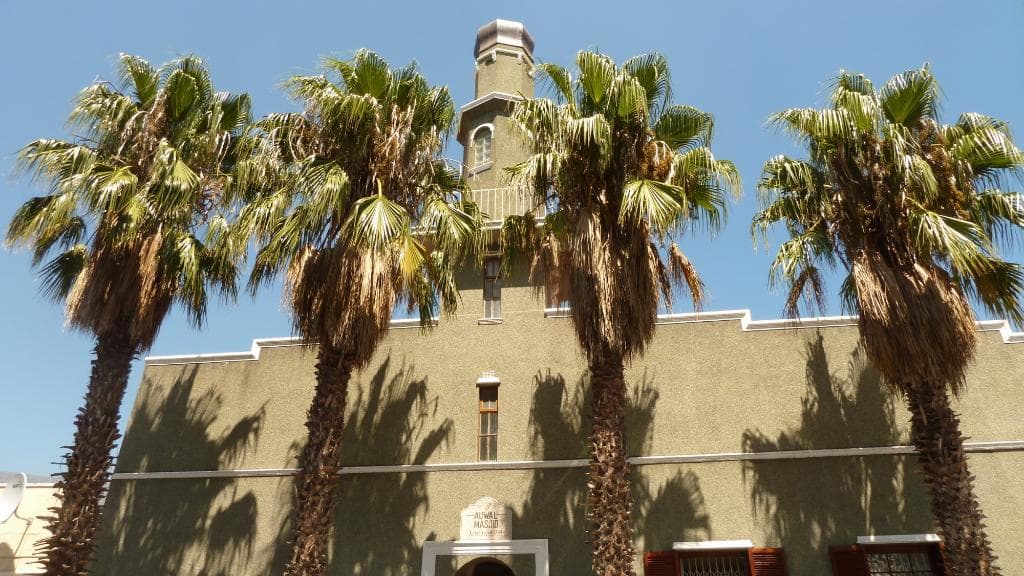
Auwal Mosque Cape Town
Auwal Mosque, South Africa's first mosque (1794), and the colorful, historic Bo-Kaap neighborhood.
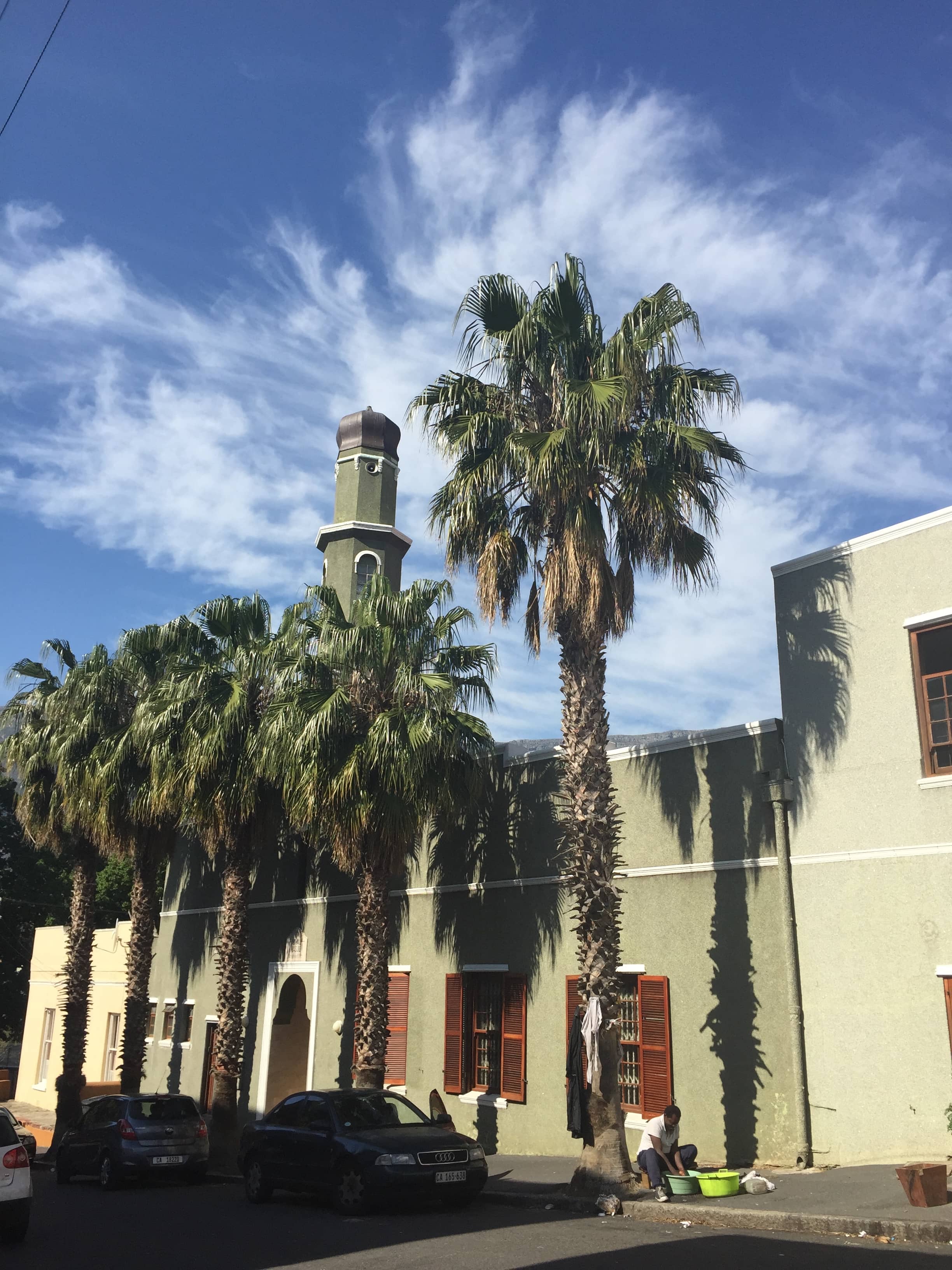
Highlights
Must-see attractions
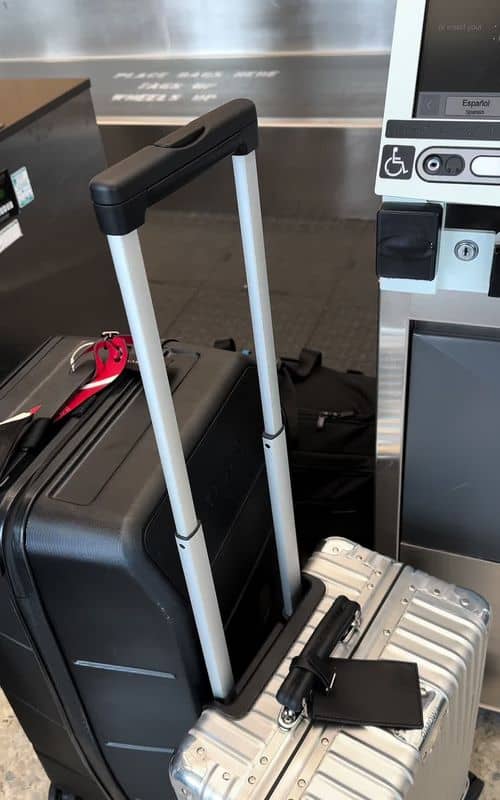
Social
From TikTok & Reddit
Best Time
Mosque is open and active

Auwal Mosque Cape Town
Best Time
Mosque is open and active

Highlights
Must-see attractions
Auwal Mosque, South Africa's first mosque (1794), and the colorful, historic Bo-Kaap neighborhood.
"A cornerstone of Islamic history and a vibrant cultural gem."
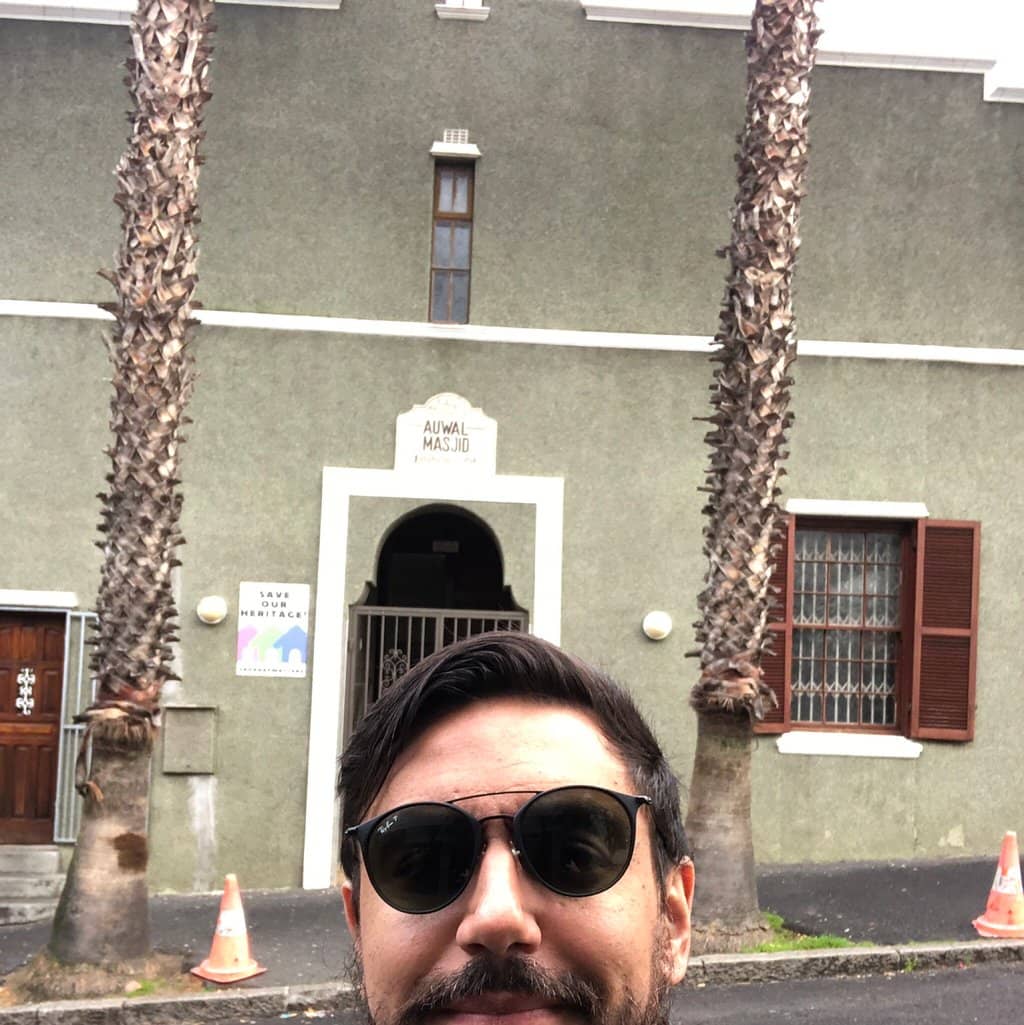
👗 Dress Modestly
Cover shoulders and knees. Carry a scarf for head covering if needed.
🕌 Visit During Prayer
Mosque is open and welcoming during prayer times.
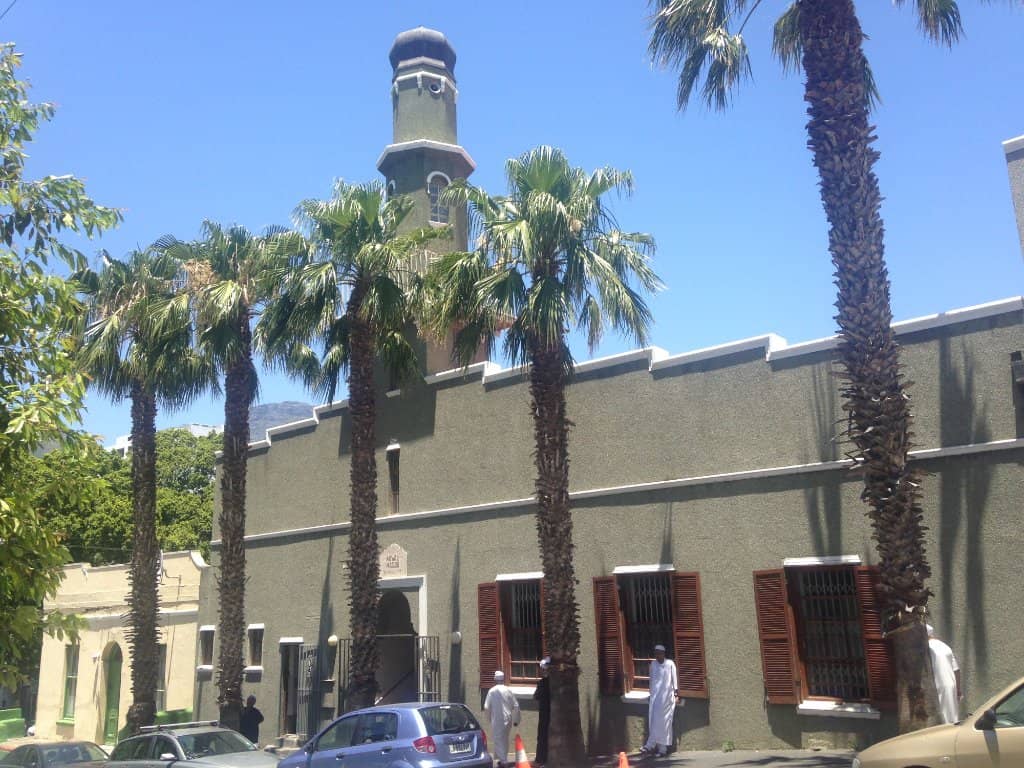
Highlights
Discover the most iconic attractions and experiences

South Africa's First Mosque
Bo-Kaap
Experience the historical significance of the Auwal Mosque, established in 1794. It's a cornerstone of Islam in South Africa.

Tuan Guru's Quran
Inside Auwal Mosque
See a copy of the Quran handwritten from memory by Tuan Guru during his imprisonment on Robben Island.
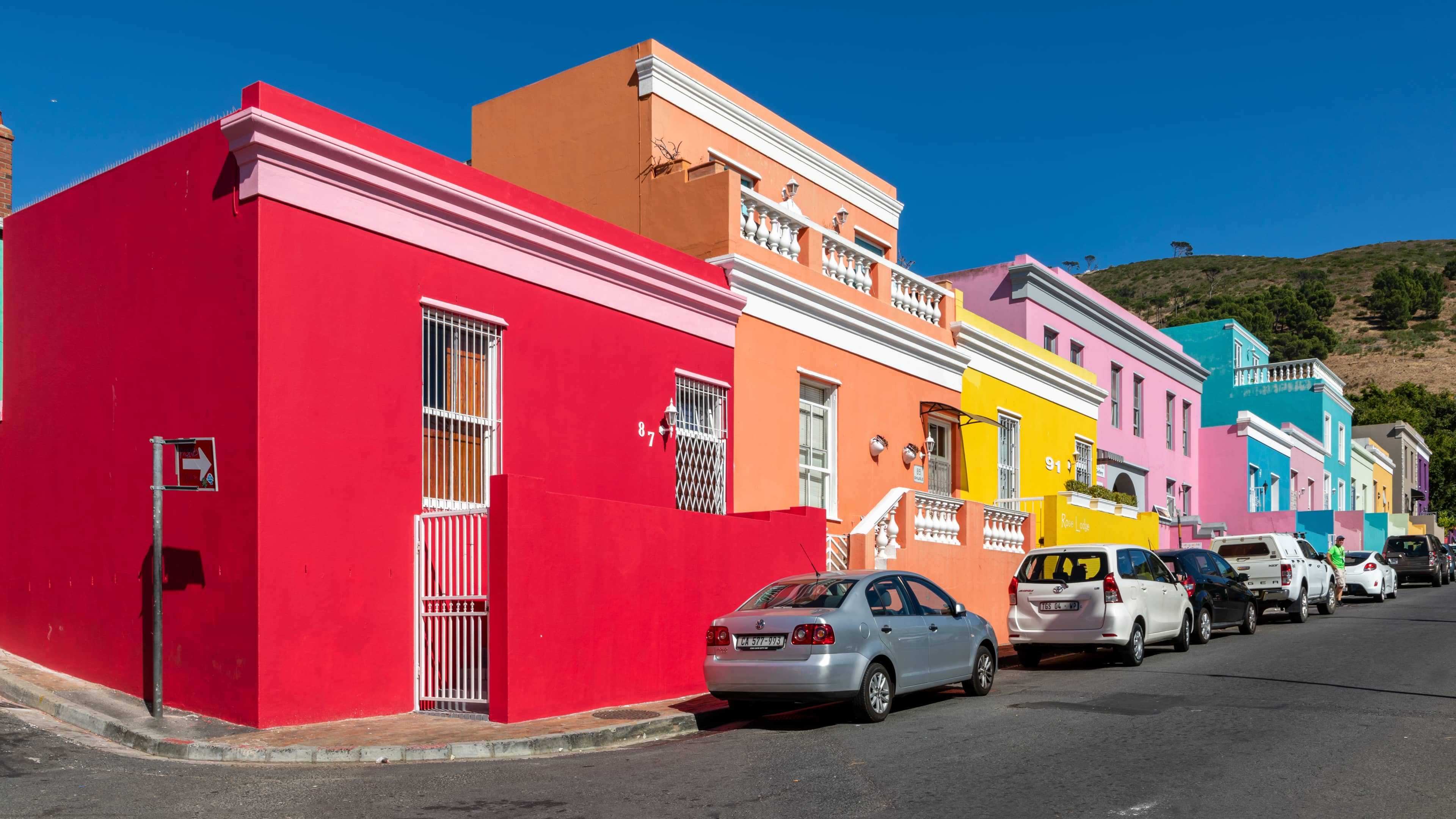
Vibrant Bo-Kaap
Surrounding area
Wander through the colorful streets of Bo-Kaap, a neighborhood rich in Cape Malay culture and history.
Plans like a pro.
Thinks like you
Planning Your Visit
Respectful Visits
Timing Your Visit
Best Times
Insider Tips
from TikTok, Instagram & Reddit
👗 Dress Modestly
Cover shoulders and knees. Carry a scarf for head covering if needed.
🕌 Visit During Prayer
Mosque is open and welcoming during prayer times.
📚 Learn the History
Discover the rich past of the first mosque in South Africa.
📸 Capture the Colors
Bo-Kaap's vibrant houses are a photographer's dream.
Tips
from all over the internet
👗 Dress Modestly
Cover shoulders and knees. Carry a scarf for head covering if needed.
🕌 Visit During Prayer
Mosque is open and welcoming during prayer times.
📚 Learn the History
Discover the rich past of the first mosque in South Africa.
📸 Capture the Colors
Bo-Kaap's vibrant houses are a photographer's dream.
🤝 Ask for Help
Community members are happy to assist visitors.
What Travellers Say
Reviews Summary
Visitors are deeply moved by the historical significance of Auwal Mosque as the first in South Africa, often highlighting the presence of Tuan Guru's handwritten Quran. The vibrant, colorful streets of Bo-Kaap are consistently praised for their visual appeal and cultural richness. Some visitors note that the mosque is small and can be easily missed if not specifically sought out.
"As a Hanafi being in the presence of the shafi people was interesting and spectacular. Allah has blessed me with the opportunity to see their prayer and their devotion to Islam. How fortuitous to be in the first masjid in South Africa!"
Quatumiser 101
"It was great to see the history of the old Masjid. Read Magrib thr and Imaam read very beautiful"
Rameez Reinier Du Preez
"The Auwal Masjid is the first and oldest mosque built in South Africa. This is evident according to very strong oral tradition which also confirms that Imam Abdullah Kadi Abdus Salaam, also known as Tuan Guru, was the first Imam at this Masjid. The Auwal Masjid came into existence in 1794 during the first British occupation of the Cape of Good Hope and was the main religious institution during the years 1804 until 1850. It is also the first to have practiced most of the Cape Muslim traditions.
The Auwal Masjid, which is situated in Dorp Street, has always been a symbol of the struggle of Cape Muslims for the recognition of Islam and their freedom to worship. The mosque was built on land belonging to the freed slave Coridon van Ceylon.
In 1793 Tuan Guru was released from Robben Island, having served a prison sentence of thirteen years. When he established his first madrasah in 1793, the property, a warehouse, was rented by Coridon of Ceylon, the freed slave of Salie van de Kaap. He then made an application to the Cape authorities for a site in Cape Town for the construction of a masjid but it was refused. An open-air Jumu ‘ah Saldh [Friday congregational prayers] was then held in a disused quarry in Chiappini Street in Cape Town. Tuan Guru, also known as Imam Abdullah, led the Cape Muslims in the Salah.
On September 26, 1794, a Vryezwarten [Free Black Muslim], Coridon of Ceylon by name, purchased two properties in Dorp Street, Cape Town. Coridon was the first Muslim to own properties in Cape Town. On his death, his wife, Trijn van de Kaap, inherited the properties, as he had willed. In 1809 Trijn sold the properties to her daughter, Saartjie van die Kaap. In this regard, Saartjie, a remarkable woman, made land available for the building of a masjid which was first constructed in 1794 with additions in 1807. A structural change – the construction of a mihrab [niche] indicating the direction of the qiblah – was made in order to convert the warehouse into a masjid. This masjid was established during the era of slavery, and established its roots in a climate of social and political prejudice.
According to Achmat van Bengalen the construction of the Auwal Masjid was made possible through General Craig who, for the first time, permitted Muslims to pray in public in the Cape Colony. The Auwal Masjid, situated in Dorp Street, Cape Town, became the first to be established and is still functioning as the noble founders had intended. It became a centre of Muslim communal activity, regulating and patterning their social and religious life.
The second site [adjacent to Auwal Masjid] is presently occupied by the family of the late imam of Auwal Masjid, Imam Gasant Achmat Gamja [Hasan Ahmad Hamzah] [d 1981], a descendant of Corridon of Ceylon.Prior to the construction of the “Saartjie’s Masjid”, the construction of masajid [sing masjid] and open freedom of worship were strictly prohibited in the Cape. The only “Kerk” [Church] permitted in the Colony was that of the Dutch Reformed Church. It was only in 1936 that extensive renovations were made to the Auwal Masjid.
The first imam of Auwal Mosque..
IMAM ‘ABDULLAH IBN KADI [QADRI] ABDUS SALAAM, known as Tuan Guru, the son of a qadi, born in 1712, was a Prince from Tidore in the Ternate Islands [of Indonesia].
He traces his geneology to the Sultan of Morocco and his ancestry to that of the holy Prophet Muhammad [salla Allahu’alayhi wa sallam]. He was brought to the Cape on April 06, 1780 as a “state prisoner” along with Callie Abdol Rauf, Badroedin [Badr al-DinJ and Noro Iman [Nur al-Iman]; they were incarcerated on Robben Island. Their registration in the “Bandieten Rollen” for 1780 reveals that they conspired politically with the English in the East against the Dutch.
While imprisoned on Robben Island, Imam ‘Abdullah [Tuan Guru], being a hafiz al-Qur’an, wrote several copies of the holy Qur’an from memory. He also authored Ma’rifatul Islami wa’1 Imani, a"
Naseema Mustapha
What People Like
What People Dislike
Frequently Asked Questions
🚇 🗺️ Getting There
The Auwal Mosque is located in the Bo-Kaap neighborhood. You can reach it by car, taxi, or ride-sharing services. It's a short drive from the city center.
While specific bus routes might vary, the Bo-Kaap area is generally accessible. It's advisable to check local transport apps for the most up-to-date information.
The Auwal Mosque is situated in Dorp Street, within the historic Bo-Kaap neighborhood of Cape Town.
Yes, if you are in the CBD or Gardens area, it's a walkable distance to Bo-Kaap and the Auwal Mosque, offering a pleasant stroll through the city.
Street parking can be limited in Bo-Kaap due to its narrow streets. It's recommended to arrive early or consider using ride-sharing services.
🎫 🎫 Tickets & Entry
There is typically no admission fee to visit the Auwal Mosque. It is a functioning place of worship, and visitors are welcomed, especially during prayer times.
The mosque is open during the five daily prayer times. For specific visiting hours outside of prayer times, it's best to inquire locally or check their community pages.
Yes, a modest dress code is required. Visitors should cover their shoulders and knees. Women may be asked to cover their hair, and scarves are often available.
Yes, Ramadan is a significant time in Bo-Kaap, and the mosque is active. The celebrations are festive and draw crowds.
While not always formally advertised, local guides or community members may offer insights into the mosque's history. Inquiring at the mosque or in Bo-Kaap can provide more information.
🎫 🧭 Onsite Experience
Auwal Mosque is significant as the first mosque established in South Africa in 1794, playing a pivotal role in the history of Islam in the country.
Inside, you can see historical artifacts, including a copy of the Quran handwritten from memory by Tuan Guru during his imprisonment.
Yes, there is a women's section, which can be accessed through the main hall.
Tuan Guru, also known as Imam Abdullah Kadi Abdus Salaam, was the first Imam of Auwal Mosque and a key figure in the early Muslim community, having been exiled from Indonesia.
Photography etiquette should be observed. It's respectful to ask for permission before taking photos, especially during prayer times.
🍽️ 🍽️ Food & Dining
Yes, the Bo-Kaap neighborhood offers several simple restaurants serving traditional Cape Malay cuisine, including curries and roti.
Cape Malay dishes are a specialty, featuring aromatic curries, samoosas, and roti, reflecting the area's cultural heritage.
Given the strong Muslim community in Bo-Kaap, most eateries in the area will serve Halal food.
Yes, you can find charming cafes in Bo-Kaap where you can relax and enjoy local treats after exploring the mosque and streets.
Look for dishes like bobotie, bredie, and various types of samoosas and curries.
📸 📸 Photography
The colorful houses, cobblestone streets, and intricate doorways of Bo-Kaap are prime photography locations.
Morning light is often ideal for capturing the vibrant colors of the houses without harsh shadows.
Always be respectful and ask for permission before photographing individuals, especially in a residential and religious area.
While generally permitted, it's best to be discreet and avoid intrusive photography, especially during prayer times. Inquire if unsure.
A wide-angle lens is great for capturing the streetscapes, while a standard lens works well for details and portraits.
For Different Travelers
Tailored advice for your travel style
👨👩👧 Families with Kids
When visiting the mosque, ensure children are dressed modestly and understand the importance of quiet behavior. The surrounding streets of Bo-Kaap are generally safe for walking, but keep an eye on children due to the narrow, sometimes busy, lanes. Consider a short food tour to introduce kids to the unique flavors of Cape Malay cuisine.
🕌 Muslim Travelers
Bo-Kaap is a hub for the Muslim community, with several mosques and Halal food options readily available. Many visitors appreciate the opportunity to pray in historic mosques and experience the local Islamic culture. Inquire about any community programs or gatherings that might be taking place during your visit.
📸 Photography Enthusiasts
For the Auwal Mosque, focus on capturing its historical presence and architectural details. Remember to be respectful of worshippers and avoid intrusive photography, especially during prayer times. The best light for the colorful houses is often in the morning.
Deep Dives
In-depth insights and expert knowledge
The Historical Significance of Auwal Mosque
The mosque's history is deeply intertwined with Tuan Guru (Imam Abdullah Kadi Abdus Salaam), a prince from Indonesia who was exiled to Robben Island. During his thirteen years of imprisonment, Tuan Guru, a hafiz al-Qur'an, famously wrote several copies of the holy Quran from memory. One of these handwritten copies is now a treasured artifact housed within the Auwal Mosque, serving as a powerful reminder of his devotion and resilience.
Auwal Mosque was not just a place of worship; it was the main religious institution for the Cape Muslim community for many years, regulating their social and religious life. It was the first to practice many Cape Muslim traditions and became a focal point for their communal activities, symbolizing their enduring faith and their fight for recognition.
Exploring the Vibrant Bo-Kaap Neighborhood
Bo-Kaap is more than just its picturesque appearance; it's a community deeply rooted in Islamic traditions. Besides the Auwal Mosque, the neighborhood is home to several other mosques and significant religious sites. The annual Ramadan celebrations here are particularly festive and draw considerable attention, showcasing the vibrant community spirit.
Visitors can immerse themselves in the local culture by exploring the Bo-Kaap Museum, which offers exhibits on the achievements of Muslim immigrants, and by sampling the delicious Cape Malay cuisine at nearby restaurants. Dishes like curries and roti are a must-try, offering a taste of the unique culinary heritage of the area.






Social
from TikTok, Instagram & Reddit